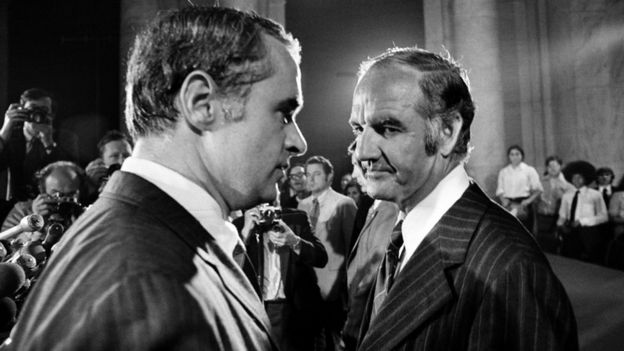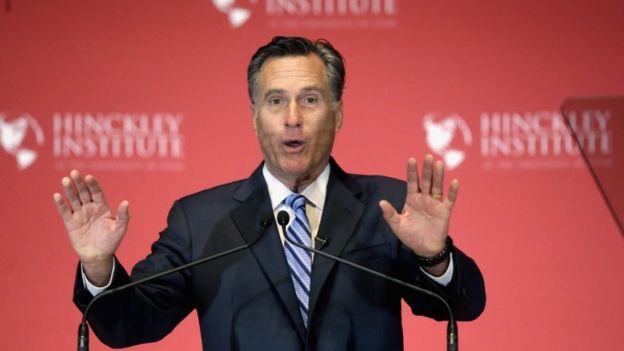Our universe is being pushed away by dark energy. Could this force have a connection to the inflationary phenomena that started everything in the first place? Image credit: NASA, ESA, R. Windhorst and H. Yan.
The very earliest stages of the Universe as-we-know-it began with the hot Big Bang, where the expanding Universe was filled with high energy particles, antiparticles and radiation. But in order to set that up, we needed a time where the Universe was dominated by energy inherent to space itself, expanded at an exponential rate and eventually decayed, giving rise to a matter, antimatter and radiation-filled Universe. Today, 13.8 billion years after the end of inflation, the matter and radiation in the Universe has become so sparse, so low in density, that it’s revealed a new component: dark energy. Dark energy appears to be energy inherent to space itself, and is causing the Universe to expand at an exponential rate. Although there are some differences between dark energy and inflation, there are some unique similarities, too. Could these two phenomena be related? And if so, does that mean the beginning and end of our Universe are connected?
scale get stretched across the Universe during inflation, giving rise to imperfections in both density and gravitational waves. Image credit: E. Siegel, with images derived from ESA/Planck and the DoE/NASA/ NSF interagency task force on CMB research.
It would seem very strange to us if there were two entirely different forces or mechanisms at play to cause the Universe to expand: one billions of years ago and one today. When it comes to the Universe, however, there’s a lot going on that appears very strange to us. First off, the Universe very, very surely is expanding. But it didn’t need a force of any type in order to do so. In fact, when you take a Universe like our own, a Universe that is:
- governed by Einstein’s General Relativity,
- filled with matter, radiation and any other “stuff” you like,
- and that’s roughly the same, on average, at all locations and in all directions,
you wind up with a funny, uncomfortable conclusion. That conclusion was first reached by Einstein himself back in the first few years of relativity itself: that such a Universe is inherently unstable against gravitational collapse.
A nearly uniform Universe, expanding over time and under the influence of gravity, will create a cosmic web of structure. Image credit: Western Washington University, via http://www.wwu.edu/skywise/a101_cosmologyglossary.html.
Recommended by Forbes
In other words, unless you concocted some “magic fix” for the problem, your Universe was going to have to either expand or contract, with both solutions being possibilities. What it couldn’t do, unless you cooked up some new type of force, was remain static.
Of course, the work of Edwin Hubble hadn’t yet come along. In addition to not knowing that the Universe was expanding, we didn’t even know whether those spiral shapes in the sky were objects within our own Milky Way or whether they were entire galaxies themselves. Because Einstein favored a static Universe at the time (like most), he made such an ad hoc fix to keep the Universe static: he introduced the idea of a cosmological constant.
The Einstein field equations, with a cosmological constant included as the final term on the left-hand side.
The central idea of Einstein’s relativity is that there are two sides to the equation: a matter-and-energy side, and a space-and-time side. It says that the presence of matter and energy determines the curvature and evolution of spacetime, and that the way spacetime curves and evolves determines the fate of every individual quantum of matter and energy within it.
What the addition of a cosmological constant did was say, “there is this new type of energy, inherent to space itself, that causes the fabric of the Universe to expand at a constant rate.” So if you had the force of gravity due to all the matter-and-energy working to collapse the Universe, while you had this cosmological constant working to expand the Universe, you could wind up with a static Universe after all. All you would need was for those two rates to match, and to exactly cancel one another out.
expanding, and there didn’t need to be a cosmological constant there to counteract the force of gravity. Instead, there was an initial condition, that the Universe began expanding very rapidly, that counteracted the force of gravity from all the matter and energy. Instead of contracting, the Universe was expanding, and that expansion rate was slowing down.
Now, there are two questions that are natural to ask — and in fact were natural to ask since this discovery in the 1920s — in the aftermath of this:
- What caused the Universe to begin expanding at this rapid rate early on?
- What will the fate of the Universe be? Will it expand forever, will it eventually reverse and recollapse, will it be on the border of these two, or something else?
The different possible fates of the Universe. The actual, accelerating fate is shown at the right; the Big Bang itself offers no explanation for the origin of the Universe itself. Image credit: NASA and ESA, via http://www.spacetelescope.org/images/opo9919k/.
The first question went unanswered for over half a century, although interestingly enough there was an initial proposal by Willem de Sitter almost immediately that it was a cosmological constant that caused this expansion to begin.
Previously thought to only occur from a cosmological constant, Alan Guth’s revelation at the end of 1979 led to the birth of cosmic inflation as a way to “blow up” the Universe at its inception. Image credit: Alan Guth’s 1979 notebook, tweeted via @SLAClab, from https://twitter.com/SLAClab/status/445589255792766976.
Finally, in the early 1980s, it was the theory of cosmological inflation that came about, proposing that there was an early phase of exponential expansion, where the Universe was dominated by something very much like a cosmological constant.
Now, it couldn’t have been a true cosmological constant — also known as vacuum energy — because the Universe didn’t remain in that state forever. Instead, the Universe could have been in a false vacuum state, where it had some energy inherent to space itself that then decayed to a lower-energy state, resulting in matter and radiation coming out: the hot Big Bang!
There are a number of other predictions that came out of inflation, all but one of which has been confirmed, and hence we accept that this early phase in the Universe did exist.
Yet, when we turn to the second question — about the Universe’s fate — we find something very strange. While we had expected that there would be a sort of race between the initial, rapid expansion and the force of gravitation acting on all the matter-and-energy in the Universe, what we found was that there was a new form of energy that was quite unexpected: something dubbed dark energy. And wouldn’t you know it? This dark energy, to the best of our knowledge, appears to take on the same form as a cosmological constant.
The far distant fates of the Universe offer a number of possibilities, but if dark energy is truly a constant, as the data indicates, it will continue to follow the red curve. Image credit: NASA / GSFC.
Now, these two types of exponential expansion, the early kind and the late kind, are very, very different in detail.
- The early Universe’s inflationary period lasted for an indeterminate amount of time — possibly as short as 10^-33 seconds, possibly as long as near-infinite — while today’s dark energy has been dominant for around six billion years.
- The early inflationary state was incredibly rapid, where the cosmological expansion rate was some 10^50 times what it is today. By contrast, today’s dark energy is responsible for about 70% of what the expansion rate is today.
- The early state must have coupled, somehow, to matter and radiation. At high enough energies, there must be some sort of “inflaton” particle, assuming quantum field theory is correct. The late-time dark energy has no known couplings at all.
That said, there are some similarities, too.
indistinguishable) equations-of-state, meaning that the relationship between the Universe’s scale and time is identical for both.
They both have identical relationships between the energy density and pressure they cause in general relativity.
And they both cause the same type of expansion — exponential expansion — in the Universe.
The “open funnel” portion of these illustrations represents exponential expansion, which occurs both at the beginning (during inflation) and at the end (when dark energy dominates). Image credit: C. Faucher-Giguère, A. Lidz, and L. Hernquist, Science 319, 5859 (47).
But are they related? It’s very, very difficult to say. The reason, of course, is that we don’t understand either one very well at all! I like to imagine a 2-liter soda bottle, partway filled, when I think about inflation. I imagine a drop of oil floating on the top of the liquid inside. That high energy state is like the Universe during inflation.
Then something happens to cause the liquid to drain out of the bottle. The oil sinks to the bottom, of course, in a low-energy state.
If inflation is like starting off at the “top” of a full soda bottle, then dark energy is like realizing the bottom of your bottle isn’t totally empty. In both cases, there’s an energy inherent to space itself; inflation’s was much larger, but dark energy’s is non-zero. Public domain images.
But if that drop winds up not at the very bottom — not at zero, but at some finite, non-zero value (like the Higgs field when its symmetry breaks) — it could be responsible for dark energy. Models that tie these two fields together, the inflationary field and the dark energy field, are known generically as quintessence.
It’s pretty easy to make a quintessence model that works. The problem is, it’s pretty easy to make two separate models — one for inflation and one for dark energy — that work, too. We have two new phenomena and they require the introduction of at least two new “free parameters” to make the theory work. You can tie them together or not, but in no way are these models distinguishable from each other.
The models that have dark energy evolving too much (i.e., w ≠ -1 always) can be ruled out with data. Image credit: Pantazis, G. et al. Phys.Rev. D93 (2016) no.10, 103503.
All we’ve been able to do, to date, is rule out certain classes of models where the early-time or late-time rates of expansion don’t agree with observation. But observations are also consistent with inflation is a thing on its own, and dark energy arises from a completely different source. I hate having to go through the full explanation of what we know, to have one phenomenon (inflation) occurring at an energy scale of around 10^15 GeV, to have another phenomenon (dark energy) at an energy scale of around 1 milli-eV, and then to have to say “we don’t know if they’re related,” but that’s the situation here.
Unfortunately, even with all the proposed missions we have — James Webb, WFIRST, LISA and the ILC — we don’t anticipate this question being answered from the data anytime soon. Our best hope is for a theoretical breakthrough. And as someone who’s worked on this problem myself, I have no idea how we’ll get there.
Astrophysicist and author Ethan Siegel is the founder and primary writer of Starts With A Bang. Follow him on Twitter, Facebook, G+, Tumblr, and order his book: Beyond The Galaxy, today!


